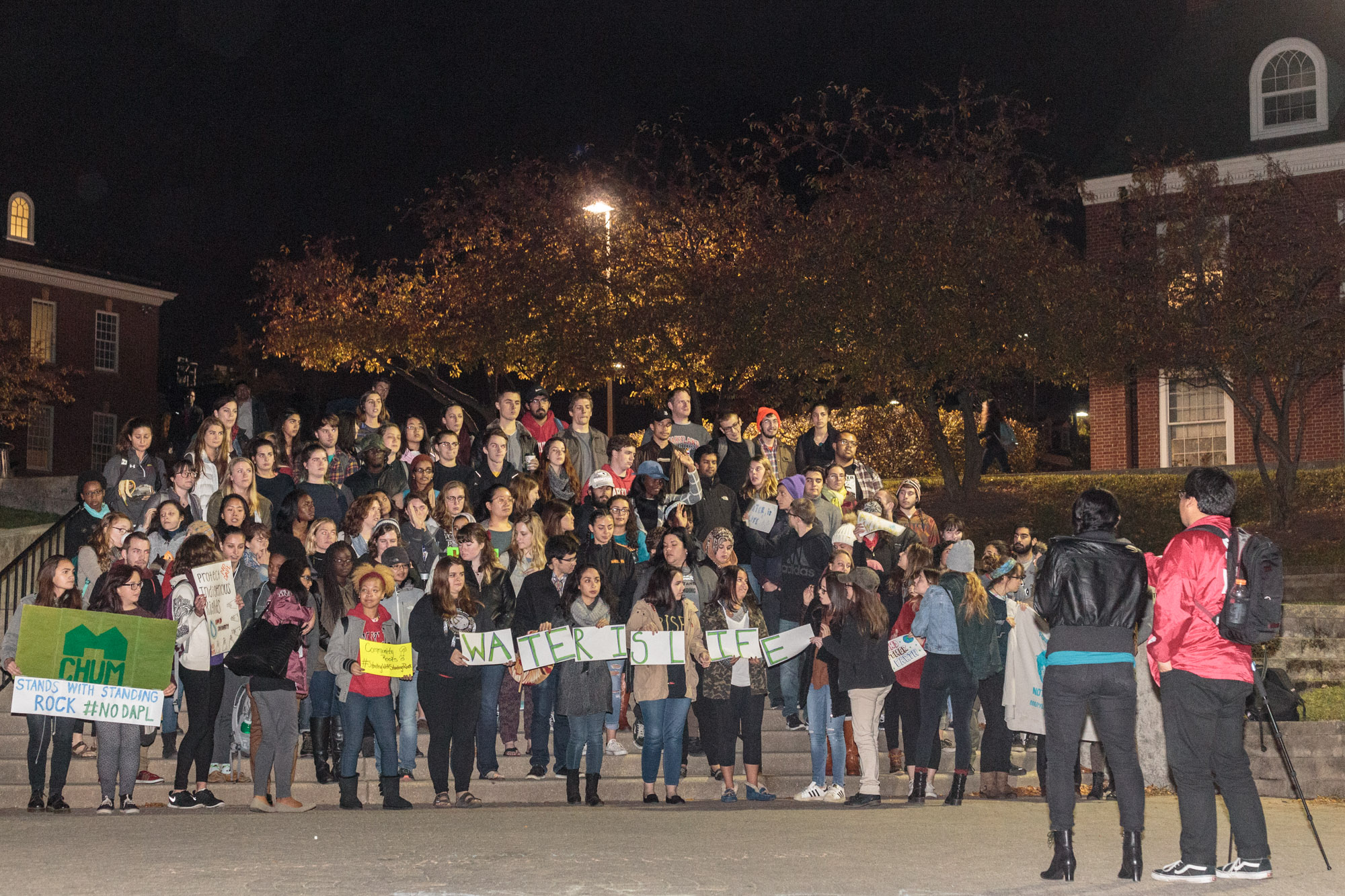By Carly Taylor
For The Diamondback
The American Indian Student Union is tired of waiting.
For months, Native American activists have been speaking out against the Dakota Access Pipeline — a proposed 1,172-mile crude oil pipeline that would cross through sacred tribal space in North Dakota and potentially threaten the reservation’s water supply.
Last week, President Barack Obama said that while his administration was looking at options to reroute the pipeline, he was “planning to let it play out for several weeks” before deciding a course of action.
More than 100 members of the University of Maryland community gathered at Hornbake Plaza Monday night in solidarity with the protesters — many of whom call themselves “water protectors” — who are still working to block the construction of the pipeline near the Standing Rock Sioux Reservation.
The AISU teamed up with several campus groups, including the Political Latinx United for Movement and Action in Society, Students for Justice in Palestine and Fossil Free MD, to bring awareness to the controversial pipeline. The students, holding posters with phrases such as “Water is life,” took a group photo in the plaza.
AISU President Karla Casique said the issue goes beyond the threat to native lands.
“We want to show the intersectionality of a lot of things like environmental racism, police brutality and militarization,” the junior journalism major said.
Protesters and police have clashed over the pipeline in North Dakota — more than 100 people were arrested and officers have deployed pepper spray and used rubber bullets.
People from around the world have expressed support for the protesters. Last week, thousands falsely “checked-in” at Standing Rock on Facebook, after a false internet rumor spread alleging police were tracking protesters through the social media.
Casique said the community reaction is “unique” compared to similar movements.
“It shows how big of an impact this has caused,” Casique said.
Though the government conducted cultural surveys assuring that the pipeline would not run through land considered sacred to American Indian tribes, members of the Standing Rock Sioux tribe maintain that they have ownership of the land under the Fort Laramie Treaty of 1851.
“Violating just another treaty … is not the way to go for the United States right now,” said freshman environmental science major Matthew White.
Though she’s far from what’s happening in North Dakota, senior Andrea Beaty said she wants to show her support “for the people who are trying to stop this pipeline.”
“I want to assert that their rights shouldn’t trampled on,” the economics major said.
For sophomore Arabic studies major Judith Williams, the $3.7 billion project lies close to home.
Williams is from South Dakota — one of the four states that the pipeline would travel through. She expressed concerns that the pipeline would affect her community and disrupt reservations in the area.
“The government could put more pressure on the company to build around reservations,” Williams said.



